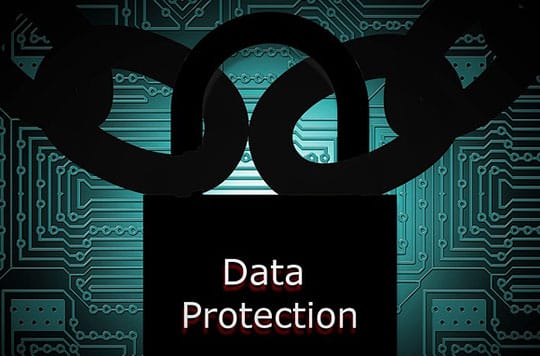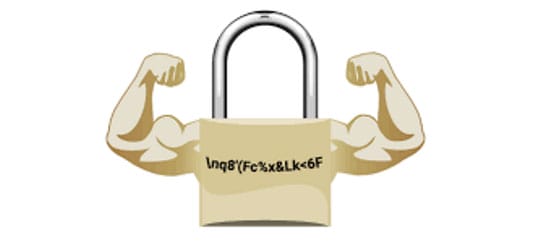The emergence of eCommerce websites has been no less than an industrial revolution. It has not only transformed the way consumers shop but has also opened up a world of possibilities for the businesses which couldn’t expand due to limited reach. If you are running an eCommerce business yourself, you already know about this side of the coin. But what about the other side?
Like any other business model, eCommerce also has its own set of drawbacks. And while most of them are outweighed by the convenience it offers, the privacy concerns are something that puts these eCommerce businesses in a bad light in the eyes of the customers. Needless to say, if you do not address those issues, it will affect your reputation. And a bad reputation is never good for business.
Privacy of customer data is certainly a great deal. And if you don’t want to lose your customer base, you need to resolve the privacy concerns that are raising questions at your company’s integrity. Here are some effective suggestions that can help you fix those issues for good.
1. Be specific about the data you collect:

Let’s clear this once and for all. Ecommerce websites are no saint. They collect data from every user who visits their websites. At least, that’s what they plan to do. Your landing page should also have the fields that request the user to submit their sensitive information such as the customer email ID, contact number and even the credit card details.
Firstly, you don’t need a bucket full of information from each customer. You only need their email ID for communication (or perhaps for marketing purpose) and the card details to process the purchase. For certain types of businesses, you may require a few more details. Besides that, you won’t require further information. So, it’s better to spare those details.
The loss of sensitive information can put your company in a lot of trouble. Keep yourself out of trouble by collecting the data you need. Also, it is absolutely necessary to clearly mention what customer data you use and who you share it within your privacy policy.
Recommended for you: Privacy Concerns as Android Users are Giving Away Too Much Information.
2. Never store the customer credit card details:

If you lose your customers’ sensitive details to the cybercriminals, you will never be able to regain the trust of your customers. By storing the confidential data on your server, you are doubling the risk. Since most cybercriminals look for stealing credit card details, it is recommended not to store such details on your server.
Losing an important piece of information can not only harm your reputation but can also slap you with legal penalties for the losses caused to customer privacy. If at all you need to save those details, store them offline where they will be safe from the clutches of hackers. However, the ideal way to deal with this problem is to secure online payment methods.
You may not confident about keeping such confidential data safe at your server. Then you can consider tying up with payment facilitators such as PayPal, Authorize.net, etc. They will deal with all the credit card related transactions.
3. Secure the transmission of data:

For most websites, the data transmission between the web server and server happens over HyperText Transfer Protocol (HTTP). Installing SSL or Secure Sockets Layer Certificate can encrypt the data that is being transferred. This makes the whole process more secure. This SSL Certificate can stop hackers from stealing information exchanged between the server and the web browser.
Besides providing with an additional layer of security over the firewall, SSL also allows you to boost your trustworthiness as an eCommerce website. When you are done configuring SLL certificate, the address bar will highlight the URL in green with a padlock symbol.
Moreover, the SSL certificate also makes your website compliant with the PCI DSS standards. Basically, you are getting the benefits of two at the cost of one.
4. Optimize the speed of your eCommerce website:

It is a no brainer that most of the shoppers first browse, filter, and explore different products before finally landing on the product page. So, if a site takes too long to load, the customer would probably get frustrated and reach out to some other website. Slow speed would lead to frustrating user experience. So, make sure that you optimize your website for speed. Ensure that none of your website pages takes more than 2 seconds to load.
5. Review who has access to what:

Do you know that a majority of the data leaks happens because of an insider? That’s right. In fact, it has been on the rise since 2014. So, it is absolutely necessary to review who has access to what in your organization. You cannot just give access to the customer data to anyone in the team.
Identify who can make changes to master data and access rights; reviewing them continuously can make a lot of difference to your website security. Since you are running an eCommerce website, you should set up separate access controls for admins, vendors and even the customers.
You may like: How Network Security Can Help Avoid IoT Device Hacking?
6. Be among the first ones to get the latest security updates:

There are high chances of data breaches and hacking of your website if your applications are not up to date. The cybercriminals can easily exploit the existing vulnerabilities in older versions if you do not get the latest updates with security patches.
The cybercriminals are smarter than ever; if you want to keep your customers’ confidential data safe from them, you need to be vigilant. These days, hackers have developed software that crawls the website and trace the systems of websites with vulnerabilities. Get the latest security updates as soon as their release. This may just help you stay one step ahead of the hackers.
7. Ask your customers to use strong passwords:

In the case of a data breach, a customer would hold you responsible for it. Little do they know or understand that they are the primary guardians of their confidential information. They are the very first step in the entire process of data security. And the best they can do to ensure that their data is safe, they are required to use strong passwords.
To be a secure and reliable eCommerce destination for your customers, demand strong passwords from your customers. Instruct them to create passwords that contain a mixture of alphabets, numerals, and symbols, so that, they cannot be hacked.
8. Beware of fake apps and websites:

Besides breaching your security with various software, the hackers have also started to create fake websites to con the customers and get access to their confidential data. The worst part is that they are using the name of popular brands to fool the customers. If you find a fake website or app that uses the same fonts, look and name as your brand, let your customers be aware of it.
You can use your social media handles across all platforms (Facebook, Twitter, LinkedIn, Instagram, Pinterest, etc.) to spread the news about this fake website or app. This will help you inform your customers and prospects about the impending threat. It also keeps your name safe from getting dragged in any fraudulent activity.
9. Ensure that your team follows internal website security protocols:

Audit your site for vulnerabilities regularly. Ensure this is done using appropriate web application security tools. Apart from this, instruct all your employees who have access to your social media handles, to steer clear of clicking on suspicious posts. Instruct them to beware of fraud friend requests and links from any unknown source.
Everyone knows that prevention is better than cure. So, make sure that you prepare your employees to act smart even in the worst-case scenarios. Teach them how to recognize and curb any harmful situations that phishing scams can get them into.
You may also like: Privacy, Security & Health Risks of Social Media & How to Prevent Those.
Parting thoughts

With the increasing number of security breaches and threats, it has become quite challenging for online businesses to earn and maintain the trust of the customers, but it is not impossible. Just ensure you are doing the business honestly and follow the measures that we just discussed.
This article is written by Suhana Williams. Suhana is a passionate blogger and digital marketing enthusiast. She is one of the most talented assignment experts who also provide assignment help through Assignmenthelp.us. She enjoys the ever-evolving world of digital marketing and loves to share her opinion on every possible update with her audience. When not creating magic with her words, you can find her sky-diving or trekking in the most bizarre locations.





